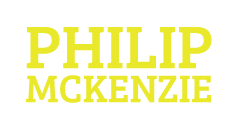Why We Get What We Deserve (The Remix)

Almost a year ago, myself and my co-host of 2 Dope Boys & a Podcast, Michael Brooks wrote an article titled “Why We Get What We Deserve”. In it, we derided (among others) Martin Shkreli, infamous former CEO of biotech company Turing Pharmaceuticals. Shkreli unapologetically raised the price of one of their HIV drugs 6000% and reveled in his role as real life villain. Now the far less colorful CEO of Mylan, Heather Bresch, came under similar fire for a 600% increase in the price of their signature drug EpiPen. Bresch, now enters the rogues gallery, of CEOs, who even in an environment defined by structural inequality and corporate misconduct, stand out for reckless endangerment of public health and well being.
Of course, Bresch defended her decision to raise prices, appearing on CNBC with the protestation that she was “running a business”, as if this somehow was an explanation for her short term decision making, In fact, running a business has become the corporate version of “just following orders”. A blanket statement designed to justify amoral, short term and greed fueled decision making. At the same time, Bresch was raising the price of EpiPen her salary was experiencing a similar spike. As EpiPen’s price rose 400%, Bresch’s salary rose 600% over the same time period. Clearly she is directly incentivized to maximum the short term goals of the company at the benefit of her salary. This is a phenomenon discussed by Rana Faroohar in her new book “Makers and Takers: The Rise of Finance and the Fall of American Business”.
CEO’s are not rewarded to take chances and develop new technologies. They are rewarded to boost shareholder value even if that value is short term in nature. Their compensation and stock options are wired in such a way as to make this behavior the norm and this is what we have to confront when examining the action and ensuing rationale of Mylan CEO Heather Bresch.
Given the incredible reward via high salaries how do we break this cycle? A dramatic shift in the way business is conducted is necessary in order to make the Martin Shkreli’s and Heather Bresch’s obsolete. A systemic commitment to a long term outlook rather than a quarter by quarter Wall Street perspective. Developing the capacity for empathic tools to develop within organizations to help executives make decisions with a love centered thinking at its core.
This of course goes far beyond the ritual roasting of a couple of select sleazy pharma CEOs (although it is fun). Instead we need to hack Capitalism, the money system and corporate governance to redesign the system itself. Let’s start addressing causes not just symptoms.
